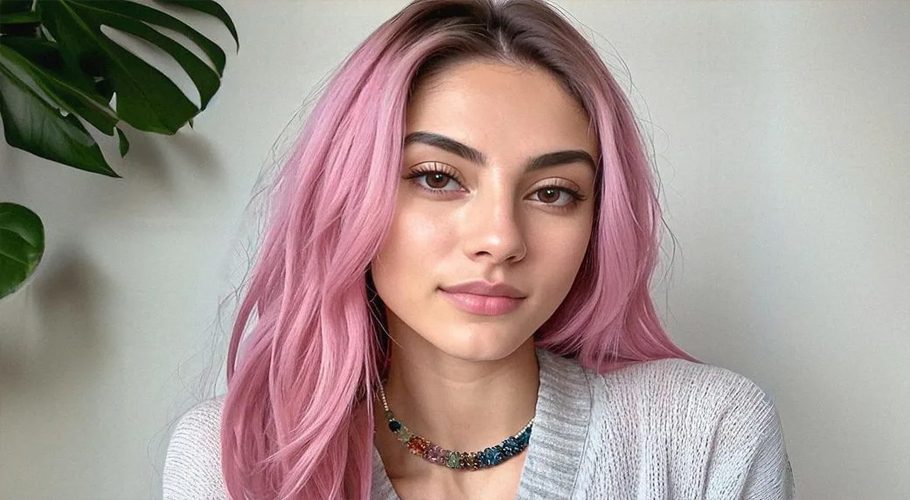With disheveled pink locks, feline-like eyes, and a striking décolletage, Aitana Lopez, 25, embodies the archetype of a model capable of marketing anything. Even Geordies would eagerly wait in line to purchase coal from her. Boasting an Instagram following of nearly 200,000, her profile showcases ensembles from renowned brands such as Victoria’s Secret, Brandy Melville, and Guess. Reportedly earning up to £9,000 monthly from her modeling endeavors, Lopez offers private content and direct communication through Fanvue, a creator platform.
In a recent caption, she declares, “Ready for the weekend in my leather goddess outfit,” prompting the question, “What word do you think best defines my personality or style?” How about ‘fabricated’? From the perspective of her creators at The Clueless, a Spanish company, Lopez’s greatest asset is that she is not real. Dismissing the notion of demanding payment, she operates tirelessly, devoid of holidays, sick days, or grievances – existing solely as pixels and imagination.

The brainchild of The Clueless, Lopez emerged as a solution to the challenges associated with human models. Rubén Cruz, the agency founder, explains, “We did it so that we could make a better living and not be dependent on other people who have egos, who have manias, or who just want to make a lot of money by posing.”
Lopez is just one among a burgeoning population of AI influencers and models transforming into a lucrative industry. While digital characters like Lil Miquela have existed for some time, the current iteration is significantly more refined, with a notable emphasis on monetization.
Will Monange, co-founder of Fanvue, attests to the success of characters like Lopez, citing the talent behind her creation. Despite the minimal cost of generating an artificial persona, crafting one that stands out requires genuine artistic prowess. Monange emphasizes that these AI entities are tools for creators, expanding opportunities for those who wish to connect with an audience without being the face of their creation.

Shahnaz Ahmed, director of creative and innovation at The Social Element, views AI influencers as a pivotal development in marketing, emphasizing their accessibility, adaptability, and potential impact on mental health and well-being.
However, not everyone sees this trend positively. Cammy Crolic, an associate professor of marketing at the University of Oxford, expresses concerns about the impact on real individuals, particularly in terms of diversity. The potential for AI to simulate diversity could undermine opportunities for underrepresented groups.
While the rise of AI influencers is undeniable, questions about their psychological impact on online interactions and the potential replacement of human creators persist. Despite their increasing realism, AI influencers still face challenges in replicating the depth of connection that real individuals can establish. The debate continues over the future role of virtual influencers in the multi-billion dollar economy of influencer marketing.



































